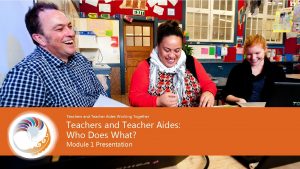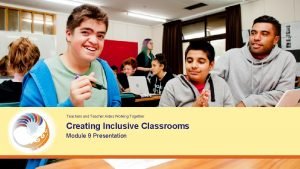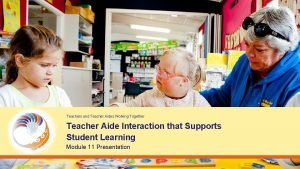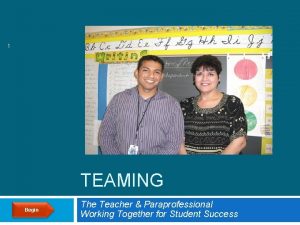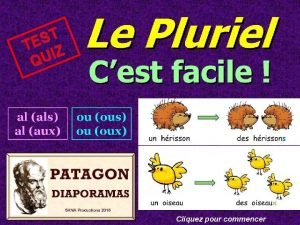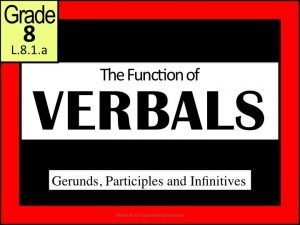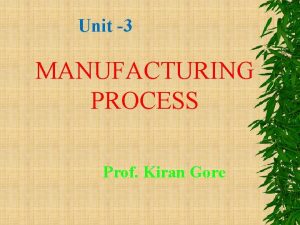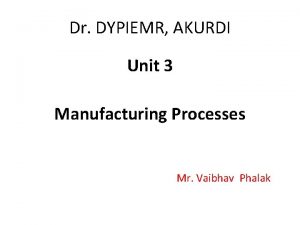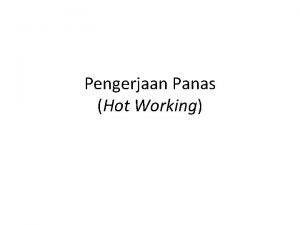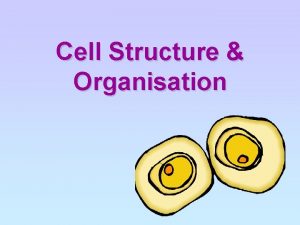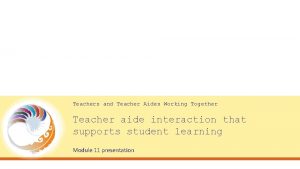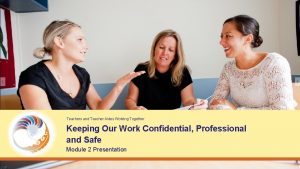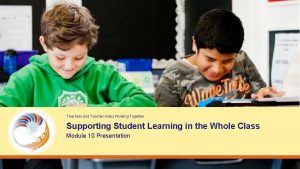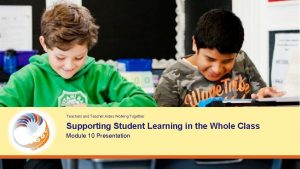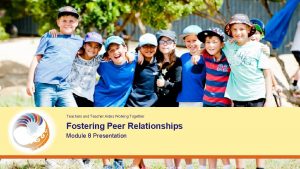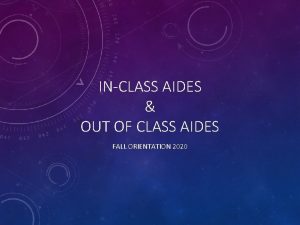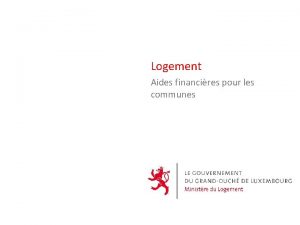Teachers and Teacher Aides Working Together What Do












- Slides: 12

Teachers and Teacher Aides Working Together What Do We Think about Disability and Diversity? Module 4 Presentation

Introducing the module This module is about educators’ attitudes and assumptions about disability and diversity and how this impacts on student learning. It is for both teachers and teacher aides. Please take your time to think and reflect.

Why this module? While meaning well, teachers and teacher aides can often make assumptions that reduce the opportunities they give students to learn. It doesn’t have to be that way! It’s important for educators to examine and articulate their beliefs and assumptions about diversity, and how this impacts on student learning.

Examining our beliefs All learners are active, capable and competent. Educators who believe in their students’ capabilities create opportunities for them all to participate and learn. This can require changes in our attitudes, behaviours and ways of working. Have you ever prevented a student trying the same activities as their peers? Could you have unconscious beliefs about disability and diversity that are getting in the way of student learning?

Getting to know students When we know our students well, we look past their disabilities. We learn about their likes and dislikes, interests and capabilities. How do you find out about the interests, capabilities and passions of the students you work with?

High expectations reflect a belief that all students can succeed, regardless of their background or disability. High expectations are self-fulfilling. “Students who expect and are expected to succeed are more likely to succeed. ” (Ka Hikitia, Mo. E, 2013 p. 38)

Lifting expectations Low expectations are self-fulfilling too. If we have low expectations, we need to examine our beliefs. What are your expectations for students with additional learning needs? Are they less for some students than for others? How could you show all your students that you expect them to succeed in learning?

Valuing diversity Diversity is about: • ethnicity • religion • sexuality • gender • first languages • disability. “Students do better in education when what and how they learn builds on what is familiar to them, and reflects and positively reinforces where they come from, what they value and what they already know. ” Ka Hikitia (Mo. E, 2013, p. 38)

Valuing diversity Value difference as a strength. Acknowledge that identity, language and culture count. Students do better when learning builds on what they know. How do you connect to students’ identity, language and culture? How do you help them connect this with their learning at school?

Ako – everyone is a teacher and a learner “Ako describes a teaching and learning relationship where the educator is also learning from the student in a two-way process. ” Ka Hikitia (Mo. E, 2013, p. 16)

Ako We can all learn from each other: teachers, teacher aides and students. How is the principle of ako reflected in your practice? Who learns from who, and what is being learned?

Next Step Ngā mihi! It’s time to choose an activity from the workbook for this module. Download the workbook for this module at: teachersandteacheraides. tki. org. nz/Ourstudents/Module-4 To find out more about Teachers and Teacher Aides Working Together and to access the other modules go to: teachersandteacheraides. tki. org. nz We wish you well in your learning!
 Teachers and teacher aides working together
Teachers and teacher aides working together Teachers and teacher aides working together
Teachers and teacher aides working together Teachers and teacher aides working together
Teachers and teacher aides working together Paraprofessionals and teachers working together
Paraprofessionals and teachers working together Croc en jambe pluriel
Croc en jambe pluriel Kim kroll
Kim kroll Hot working and cold working difference
Hot working and cold working difference Cold working advantages
Cold working advantages Differentiate between hot working and cold working
Differentiate between hot working and cold working Pembentukan logam
Pembentukan logam Root hair cells
Root hair cells Churches and schools working together
Churches and schools working together Volunteers working together
Volunteers working together
